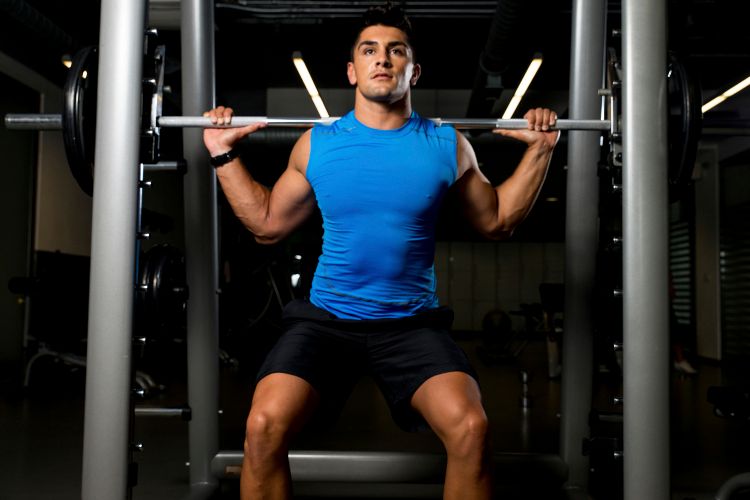Meta-analysis finds that vitamin E may reduce the risk of exercise-induces muscle damage in athletes
A recent meta-analysis found that supplementation with vitamin E below 500 IU could reduce the risk of exercise-induced muscle damage by reducing creatine kinase.
Photo © iStockphoto.com/Ibrakovic

A recent meta-analysis published in the journal Nutrients1 found that supplementation with vitamin E below 500 IU could reduce the risk of exercise-induced muscle damage by reducing creatine kinase. According to the study, vitamin E had a significant effect on muscle damage immediately after exercise but had no protective effects 24 or 48 hours after exercise. Low doses, less than or equal to 500 IU were found to have ameliorative effects while doses higher than 500 IU had no impact on muscle damage. It was also observed that CK concentrations significantly decreased following vitamin E supplementation, but the benefits were only experienced by athletes.
"Vitamin E is made up of two broad members – tocopherols and tocotrienols. Tocotrienols have also been shown to improve endurance capacity as indicated by a longer duration of swimming and reduce exercise-induced oxidative stress2. As such, vitamin E supplementation has demonstrated potential in mitigating exercise-induced muscle damage,” said Ariati Aris, PhD, scientific affairs specialist at PhytoGaia, in a press release. PhytoGaia manufactures palm phytonutrients, including vitamin E tocotrienols.
“By scavenging free radicals and reducing lipid peroxidation, full spectrum vitamin E (d-mixed tocopherols + d-mixed tocotrienols) may help minimize oxidative damage to muscle tissues,” continued Aris. “This effect is particularly relevant for endurance athletes who engage in prolonged, strenuous and repetitive exercise, as they are more prone to muscle damage caused by oxidative stress.”
References
- Kim, M.; Eo, H.; Lim, J.G.; Lim, H.; Lim, Y. Can Low-Dose of Dietary Vitamin E Supplementation Reduce Exercise-Induced Muscle Damage and Oxidative Stress? A Meta-Analysis of Randomized Controlled Trials. Nutrients, 2022, 14 (8): 1599, DOI: 10.3390/nu14081599
- Lee, S.P.; Mar, G.Y.; Ng, L.T. “Effects of Tocotrienol-Rich Fraction on Exercise Endurance Capacity and Oxidative Stress in Forces Swimming Rats. Eur J Appl Physol, 2009, 107 (5): 587-95, DOI: 10.1007/s00421-009-1159-6










